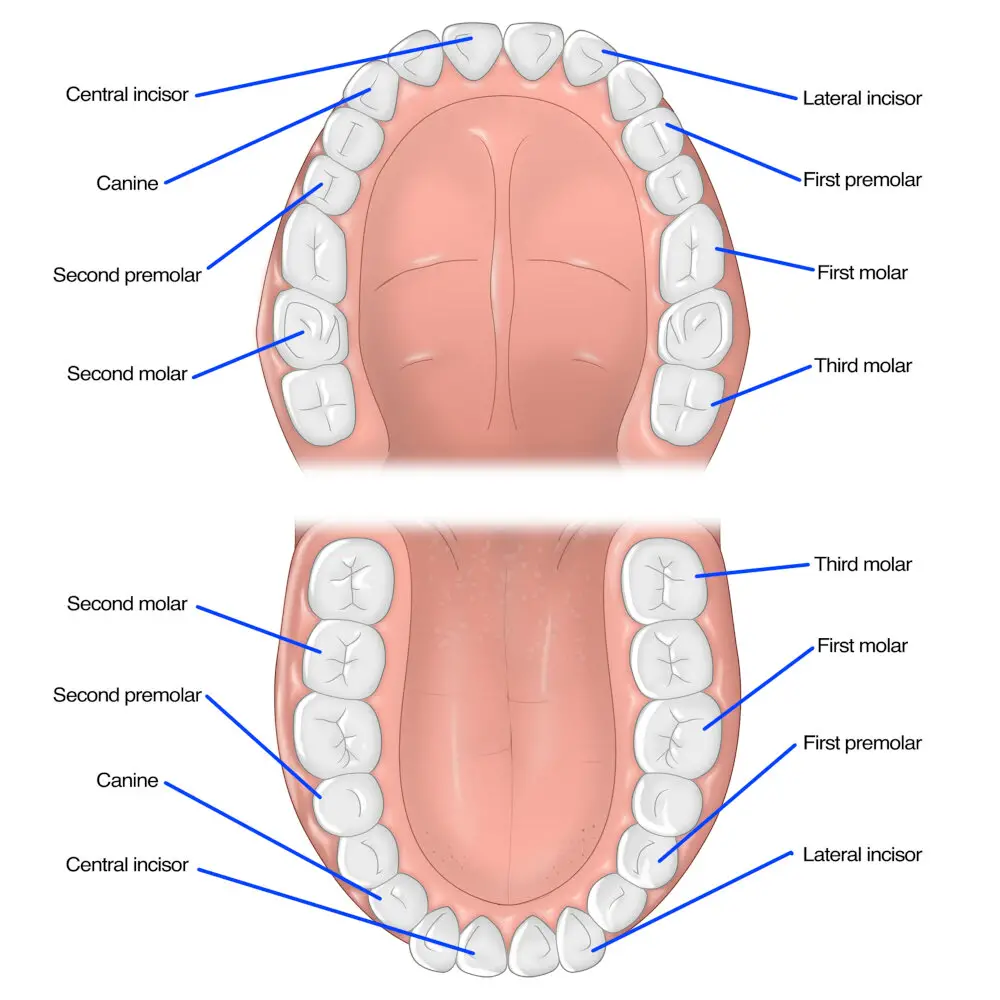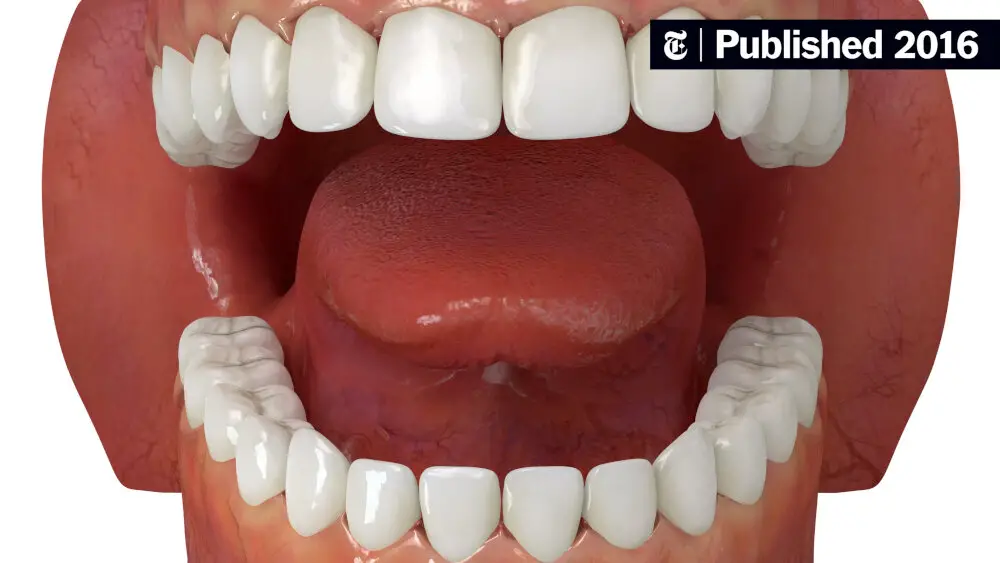Discover the HeartTeeth Connection: Which Teeth Can Indicate Heart Health?

When it comes to maintaining good overall health, most people focus on things like diet, exercise, and regular medical check-ups. However, recent research has shown that there may be a surprising link between dental health and heart health. In fact, certain dental problems may be an early warning sign of heart disease or other cardiovascular problems. Understanding the connection between your teeth and your heart could be a crucial step in protecting your long-term health. So, what is the heart-teeth connection, and how can you tell if your dental health is at risk for heart problems? In this guide, we’ll explore the latest research on the relationship between dental health and heart health, as well as which specific teeth may be most closely linked to cardiovascular issues. We’ll also discuss what you can do to protect your dental and heart health, from simple changes to your diet and lifestyle to regular check-ups with your dentist and doctor. Whether you’re already concerned about your dental health or simply curious about the latest medical research, read on to learn more about the heart-teeth connection.
The heart-teeth connection is a complex and fascinating phenomenon that has been studied by medical professionals for many years. Recent research has shown that there is a correlation between the health of a person’s teeth and the health of their heart. Specifically, it has been found that people with gum disease are at a higher risk of developing heart disease than those without gum disease. This is because the bacteria that cause gum disease can enter the bloodstream and cause inflammation in the body, including the walls of the arteries. This inflammation can lead to the formation of plaque, which can eventually block blood flow to the heart and cause a heart attack. Therefore, it is important to maintain good oral hygiene to reduce the risk of gum disease and protect your heart health.
Dental health is an integral part of overall health. Poor dental health not only causes oral problems such as cavities, gum disease, and bad breath, but it can also lead to serious health issues such as heart disease. Research has shown a strong link between gum disease and heart disease. The bacteria that cause gum disease can enter the bloodstream and cause inflammation throughout the body, including the heart. This inflammation can lead to the build-up of plaque in the arteries, which can eventually result in heart disease. Maintaining good oral hygiene and visiting the dentist regularly can help prevent gum disease and reduce the risk of heart disease. Therefore, taking care of your teeth is not only important for a healthy smile, but also for a healthy heart.
The Link Between Gum Disease and Heart Disease

Gum disease and heart disease may seem like two completely unrelated health issues, but research has shown that there is a strong link between the two. The connection lies in the inflammation that occurs in both conditions. Gum disease is caused by the buildup of plaque and bacteria around the gum line, which can lead to inflammation of the gums. Similarly, heart disease is caused by the buildup of plaque in the arteries, which can lead to inflammation and narrowing of the arteries. This inflammation can cause damage to the heart and increase the risk of heart attack and stroke. The bacteria from gum disease can also enter the bloodstream and travel to the heart, causing further damage and increasing the risk of heart disease. Therefore, it is important to take care of your oral health in order to reduce your risk of heart disease. Maintaining good oral hygiene, such as brushing and flossing regularly, can help prevent gum disease and reduce inflammation in the mouth. Eating a healthy diet and avoiding tobacco products can also help reduce your risk of both gum disease and heart disease. Regular check-ups with your dentist can help detect gum disease early and prevent it from progressing. Additionally, it is important to inform your healthcare providers of any oral health issues, as they may be able to identify any potential links to heart disease and provide appropriate treatment. By taking care of your oral health, you can not only improve your overall health, but also reduce your risk of heart disease.
Gum disease, also known as periodontal disease, is a bacterial infection that affects the tissues that surround and support the teeth. This disease occurs when plaque, a sticky film of bacteria, builds up on the teeth and hardens into tartar, which can only be removed by a dental professional. The bacteria in plaque and tartar release toxins that irritate the gums, causing inflammation and bleeding. If left untreated, gum disease can lead to tooth loss and damage to the bone and tissues that support the teeth. Moreover, recent studies have shown that gum disease can also have a significant impact on overall health, including an increased risk of heart disease. Therefore, it is crucial to maintain good oral hygiene and visit the dentist regularly to prevent and treat gum disease.
Gum disease, also known as periodontitis, is an inflammatory condition that affects the gums and tissues that support the teeth. When left untreated, it can lead to tooth loss and bone damage. However, recent studies have shown that the inflammation caused by gum disease can also spread throughout the body, increasing the risk of developing heart disease. The bacteria that cause gum disease can enter the bloodstream and attach to the walls of the arteries, causing them to become inflamed and narrow. This can eventually lead to atherosclerosis, a condition in which the arteries become clogged with plaque, increasing the risk of heart attack and stroke. Therefore, it is essential to maintain good oral hygiene to prevent gum disease and reduce the risk of developing heart disease.
Numerous studies have suggested a link between oral health and heart disease. One such study conducted by the American Heart Association found that people with gum disease have a higher risk of developing heart disease than those with healthy gums. The bacteria that cause gum disease can travel through the bloodstream, causing inflammation and damage to the blood vessels and heart. Another study published in the Journal of Periodontology showed that people with poor oral hygiene had higher levels of bacteria in their bloodstream, which can lead to the formation of blood clots and increase the risk of heart attack and stroke. These studies highlight the importance of maintaining good oral hygiene to prevent gum disease and potentially reduce the risk of heart disease.
Prevention and treatment options are essential for maintaining good heart health, as well as healthy teeth. Regular dental check-ups and good oral hygiene practices, such as brushing and flossing, can help prevent gum disease, which has been linked to an increased risk of heart disease. Additionally, lifestyle changes such as quitting smoking, reducing alcohol consumption, and eating a heart-healthy diet can also have a positive impact on both oral and cardiovascular health. In cases where gum disease has already developed, treatment options include professional cleanings, scaling and root planing, antibiotics, and even surgery in severe cases. By taking care of both our teeth and our hearts, we can improve our overall health and well-being.
Teeth as Indicators of Heart Health

Teeth are not just essential for chewing food, but they can also provide crucial information about a person’s overall health. Researchers have found that there is a strong correlation between dental health and cardiovascular health. Studies have shown that poor dental hygiene can lead to bacterial infections in the mouth that can travel through the bloodstream and cause inflammation in the arteries. This inflammation can lead to the development of heart disease, stroke, and other cardiovascular issues. Therefore, maintaining good dental hygiene is not only essential for healthy teeth and gums but also for overall heart health. Several teeth-related issues can indicate potential cardiovascular problems. For instance, gum disease, also known as periodontitis, has been linked to a higher risk of heart disease. Gum disease is caused by bacteria in plaque that builds up on teeth and gums. If left untreated, these bacteria can cause inflammation and infection in the gums, leading to tooth loss. Furthermore, the bacteria can enter the bloodstream and cause inflammation in the arteries, leading to the development of cardiovascular disease. Therefore, regular dental check-ups and good oral hygiene practices can not only prevent gum disease but also reduce the risk of developing heart disease.
The connection between heart health and teeth lies in the fact that gum disease and heart disease are both linked to chronic inflammation. When gums become inflamed due to bacterial buildup, the inflammation can spread throughout the body, including the arteries leading to the heart. This can increase the risk of heart attack, stroke, and other cardiovascular problems. In particular, studies have shown that people with periodontitis, a severe form of gum disease, are more likely to have heart disease than those without it. Therefore, monitoring and maintaining good oral hygiene can not only keep your teeth healthy but also reduce the risk of heart-related complications.
When it comes to dental health, it is important to know that there are specific teeth and oral symptoms that can indicate potential heart health problems. A common sign is inflamed gums, which can be a symptom of periodontitis, a serious gum infection that can lead to tooth loss and increase the risk of heart disease. Additionally, a condition known as pulpitis, which is the inflammation of the dental pulp, can also be an indicator of potential heart problems. Other symptoms to look out for include loose teeth, bleeding gums, and bad breath. It’s crucial to maintain good oral hygiene and schedule regular dental checkups to ensure the health of your teeth, gums, and overall well-being.
Regular dental checkups are crucial for maintaining oral health, but they are also important for overall health. Research has shown a strong link between gum disease and heart disease, with gum disease being a potential risk factor for heart disease. During a dental checkup, a dentist can detect early signs of gum disease and provide treatment before it progresses. Additionally, regular cleanings can remove plaque and tartar buildup, which can also contribute to heart disease. By prioritizing regular dental checkups, individuals can not only maintain a healthy smile but also potentially reduce their risk of heart disease.
Other Health Conditions Linked to Oral Health

Oral health is not only important for maintaining a healthy smile and proper digestion but also for overall health. Poor oral hygiene can lead to various health problems, some of which are directly linked to the heart. Gum disease, also known as periodontal disease, is a common condition that affects the tissues and bones that support the teeth. Research shows that gum disease is linked to an increased risk of cardiovascular disease, stroke, and heart attack. The bacteria that cause gum disease can enter the bloodstream and attach to fatty deposits in the blood vessels, leading to inflammation and narrowing of the arteries. This can restrict blood flow to the heart and increase the risk of heart disease. In addition to gum disease, other oral health conditions that are linked to heart health include endocarditis, a rare but serious infection of the heart valves, and atherosclerosis, a condition in which plaque builds up inside the arteries. Poor oral hygiene can also lead to inflammation throughout the body, including the arteries, which can increase the risk of heart disease. Therefore, it is important to maintain good oral hygiene by brushing and flossing regularly, visiting the dentist for checkups and cleanings, and eating a healthy diet. By taking care of your oral health, you can not only maintain a healthy smile but also protect your heart and overall health.
Oral health is not limited to just teeth and gums, but it’s interconnected with our overall health. Several other health conditions are linked to oral health, such as cardiovascular diseases, diabetes, respiratory infections, osteoporosis, and even dementia. Studies have shown that poor oral health can lead to an increased risk of heart disease, as oral bacteria can enter the bloodstream and cause inflammation, leading to the formation of plaque in the arteries. Moreover, people with diabetes are more prone to gum diseases, and untreated gum disease can affect blood sugar levels, making it harder to control diabetes. Therefore, maintaining good oral health is not just essential for a beautiful smile but also for overall well-being.
Diabetes, stroke, and respiratory diseases are all serious health concerns that can affect various organs and systems within the body, including the heart. Diabetes can lead to high blood sugar levels, which can damage the blood vessels and increase the risk of heart disease. Stroke occurs when blood flow to the brain is disrupted, often due to a blood clot or ruptured blood vessel. This can result in brain damage and can also increase the risk of heart disease. Respiratory diseases, such as chronic obstructive pulmonary disease (COPD), can cause inflammation in the lungs and lead to reduced oxygen levels in the blood, which can also increase the risk of heart disease. Therefore, it’s important to be aware of the potential links between these conditions and heart health, and take steps to reduce the risk of developing them.
The connection between heart and teeth health has been established through various studies and researches. Gum disease, which is a common dental problem, is linked to an increased risk of heart disease. The bacteria in the mouth that cause gum disease can enter the bloodstream and trigger inflammation in the arteries, which can lead to atherosclerosis and increase the risk of heart attacks and strokes. To prevent this connection, it is important to maintain good oral hygiene, including brushing twice a day, flossing regularly, and visiting the dentist for regular checkups and cleanings. Additionally, lifestyle changes such as quitting smoking, reducing alcohol consumption, and eating a healthy diet can also help to prevent gum disease and protect your heart health.
Maintaining Good Oral Health for Heart Health

Good oral health is not just essential for keeping your teeth and gums healthy, but it also plays a significant role in maintaining the health of your heart. There is a strong correlation between poor oral health and cardiovascular diseases. The bacteria in your mouth can enter your bloodstream and cause inflammation, which can lead to various heart conditions like clogged arteries, stroke, and heart attack. Therefore, maintaining good oral hygiene is crucial for your overall health and well-being. Brushing your teeth twice a day, flossing daily, and visiting your dentist regularly can help prevent the buildup of harmful bacteria in your mouth. A healthy diet and avoiding smoking can also help reduce the risk of oral and heart diseases. In addition to brushing and flossing, there are other steps you can take to improve your oral health and reduce the risk of heart diseases. Regular dental checkups and cleanings can help remove tartar and plaque buildup, which can cause gum disease and tooth decay. If you have any oral health issues, such as gum disease, it’s essential to treat them promptly to prevent further complications. You can also incorporate heart-healthy foods into your diet, like leafy greens, fish, and nuts, to improve your overall health. By taking care of your oral health, you’re not just taking care of your teeth and gums, but you’re also taking care of your heart.
Maintaining good oral health is crucial for overall health and wellbeing. To keep your teeth and gums healthy, it is essential to brush twice a day with fluoride toothpaste, floss daily, and use mouthwash regularly. Additionally, limiting sugary and acidic foods and drinks can prevent tooth decay and erosion. Scheduling regular dental check-ups and cleanings can also help detect and prevent oral health issues before they become serious. Furthermore, quitting smoking and avoiding tobacco products can decrease the risk of gum disease and tooth loss. By following these simple tips, you can maintain good oral health and potentially reduce the risk of heart disease and other health complications.
Maintaining a healthy diet is crucial for overall health and well-being, including heart health. A well-balanced diet that includes fruits, vegetables, whole grains, lean protein, and healthy fats can help reduce the risk of heart disease and other chronic illnesses. Consuming excessive amounts of unhealthy foods such as processed and fast food, sugary drinks, and saturated and trans fats can increase the risk of developing heart disease, high blood pressure, and high cholesterol. Additionally, a healthy diet can promote good oral health, which has been linked to a lower risk of heart disease. A nutritious diet is not only essential for maintaining a healthy body weight but also for preventing various health problems and improving overall quality of life.
Maintaining good oral hygiene through regular brushing and flossing is crucial for overall health. Poor oral hygiene can lead to a buildup of bacteria in the mouth, which can cause plaque, gum disease, and tooth decay. Additionally, recent research suggests a link between poor oral health and an increased risk of heart disease. Brushing twice a day with a fluoride toothpaste and flossing daily can help prevent these issues, ultimately leading to a healthier smile and a healthier heart. It is important to prioritize oral hygiene as a part of your daily routine to maintain good overall health and reduce the risk of potential health complications.
Regular dental checkups are crucial for maintaining good oral health. Dental professionals can identify early signs of gum disease, cavities, and other dental issues during routine checkups. Additionally, dental exams provide an opportunity for patients to receive advice on proper oral hygiene techniques and dietary habits that can help prevent dental problems. The link between dental health and heart health has also been established, making regular dental checkups even more important. By examining the teeth and gums, dentists can identify signs of inflammation and infection that may contribute to heart disease. Therefore, scheduling routine dental checkups can not only improve oral health but also overall health and well-being.
Quitting smoking is of utmost importance not only for oral health but also for overall health, particularly heart health. Smoking is a major risk factor for cardiovascular diseases such as heart attack and stroke. It damages the blood vessels and leads to the buildup of plaque in the arteries, making them narrow and stiff. This restricts blood flow to the heart, brain, and other vital organs, leading to various health complications. Additionally, smoking is also linked to gum disease, tooth loss, and oral cancer. Therefore, quitting smoking is crucial for maintaining good oral and heart health, reducing the risk of life-threatening diseases, and improving the quality of life.
The Heart-Teeth Connection is a fascinating topic that explores the relationship between oral health and heart disease. Research suggests that there is a significant correlation between gum disease and heart health, as bacteria from the mouth can enter the bloodstream and cause inflammation in the heart arteries. Furthermore, studies have shown that individuals with poor oral hygiene are at a higher risk of developing cardiovascular disease. In particular, teeth that are heavily coated in plaque or have deep pockets around the gums can indicate potential heart problems. Therefore, it is crucial to maintain good oral hygiene practices, such as brushing and flossing regularly, to reduce the risk of both gum disease and heart disease.
Maintaining good oral health is crucial for overall health as it can impact many aspects of our well-being. Poor oral hygiene can lead to gum disease, which has been linked to numerous health issues such as diabetes, heart disease, and stroke. In fact, recent studies have shown a strong correlation between gum disease and heart health, as the bacteria in the mouth can travel to the heart and cause inflammation, leading to serious cardiovascular issues. Therefore, it is important to prioritize good oral hygiene habits such as brushing, flossing, and regular dental check-ups to not only keep our teeth and gums healthy but also to protect our overall health.
Taking good care of your teeth isn’t just about maintaining a beautiful smile. It is also essential for your overall health, particularly your heart health. Studies have shown that poor dental hygiene can increase the risk of heart disease, stroke, and other cardiovascular conditions. The link between gum disease and heart health is believed to be due to the inflammation caused by bacteria in the mouth that can spread to other parts of the body. Therefore, it is imperative to prioritize regular dental check-ups, brushing, flossing, and a healthy diet to keep your teeth and gums healthy, reduce the risk of gum disease, and ultimately protect your heart health. By taking care of your teeth, you’re also taking care of your heart, and that’s something worth smiling about.
Conclusion

In conclusion, the connection between heart health and dental health is becoming increasingly evident. The state of our teeth and gums can serve as indicators of potential heart problems and vice versa. Research has shown that individuals with poor dental hygiene and gum disease are at a higher risk of developing cardiovascular diseases. Therefore, it is important to prioritize proper oral hygiene and regular dental check-ups to maintain not only a healthy smile but also a healthy heart. By taking care of our teeth, we may be taking care of our hearts as well.





